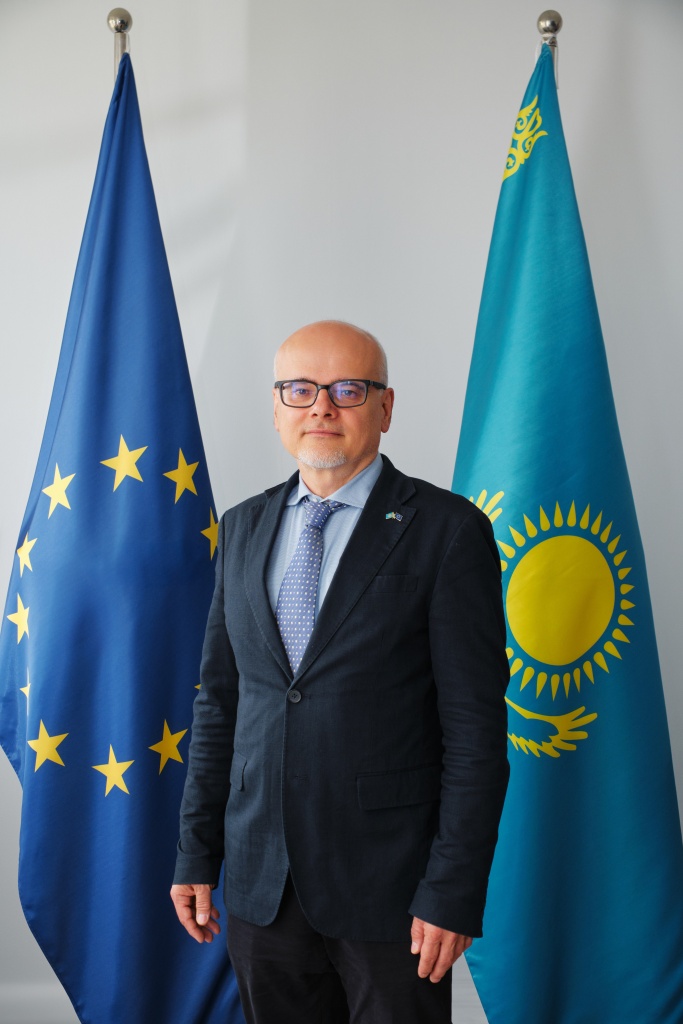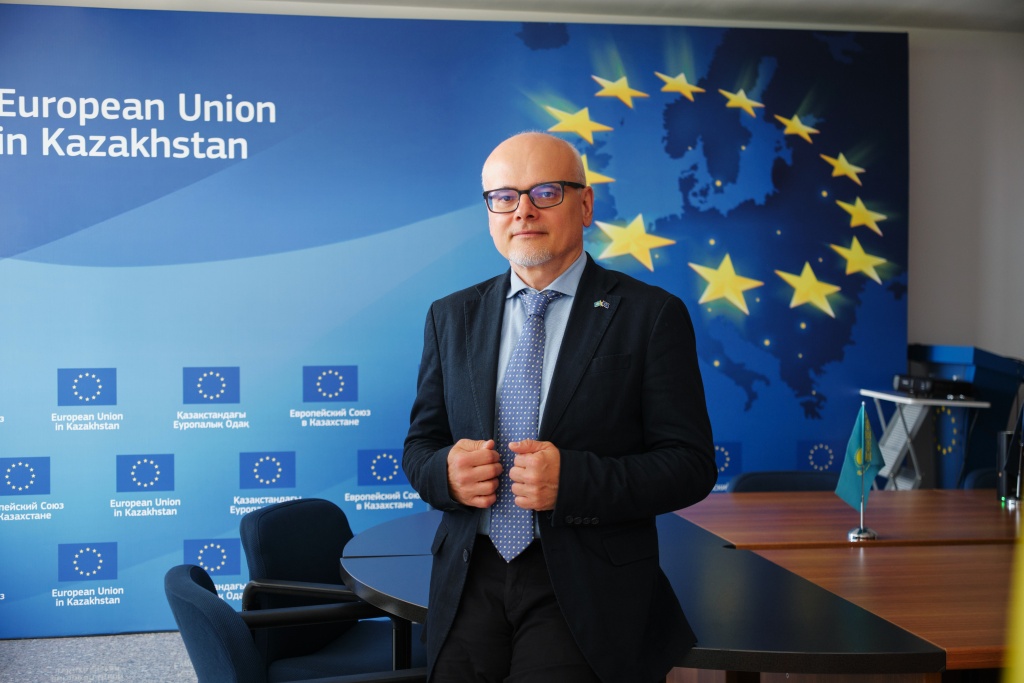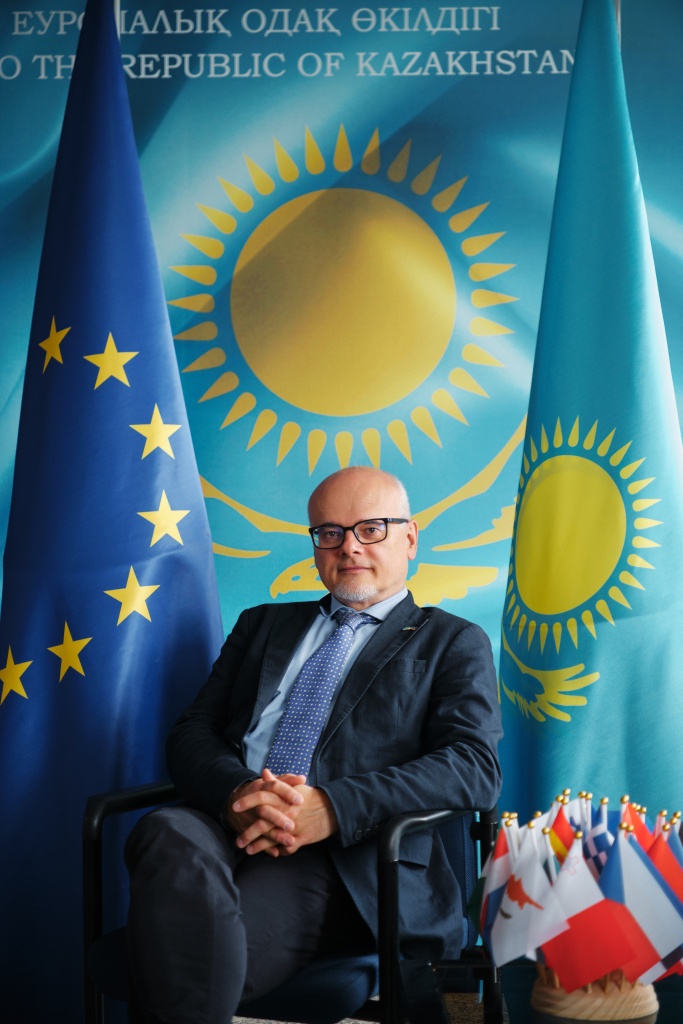Maciej Madaliński talks about life in Kazakhstan and his work on simplifying visa procedures for Kazakh citizens traveling to Europe.
Maciej Madaliński, city — Astana, Head of the Political, Press and Information Section at the EU Delegation to Kazakhstan

About me
I represent the European Union and currently serve as the Acting Deputy Head of Delegation. I lead a team of six experts in the press, information, and political affairs section.
In the late 1990s, I moved from Warsaw to Prague, working on projects integrating railway and road networks into the pan-European system. That was the beginning of my international career.
I joined the EU system in 2006. Before that, I worked as a consultant in international cooperation and contributed to developing transport corridors for countries preparing to join the EU.
Today, I speak seven languages and have lived in nine countries: Poland, Hungary, the Czech Republic, Germany, the UK, Belgium, Lebanon, Tajikistan, and Kazakhstan. Each place has left its mark on my heart.
About my work
My first official diplomatic assignment was in Beirut, Lebanon, in 2011. Now I’m fully engaged in political affairs — I head the political section and coordinate EU member states on visa and Schengen matters.
We are deeply involved in communication projects and coordinate visa policy, including negotiations on simplifying Schengen visas. It’s a long journey — final agreements can take years. But Kazakhstan is the first partner in Central Asia with whom we’ve started such a dialogue.
On Central Asia
I’ve been living in Kazakhstan for five years. When we apply for postings, we indicate our preferences. Central Asia has always been close to my heart. Kazakhstan was one of my top choices, and I was offered the position.
Over these five years, many things have surprised and delighted me — how people here have preserved traditions despite the Soviet past, the strength of family values, the richness of national music, and the deep cultural awareness and identity among Kazakhs.

It’s fascinating to witness the gradual return of the Kazakh language. It’s a long process, but I see the change. I started by improving my Russian and then took a summer course in Kazakh. Now I have passive comprehension — I can follow the gist of speeches at official events. Sometimes I even respond in Kazakh in shops, especially in the south or west of the country.
The cultural diversity of Central Asia fascinates me. For example, Tajikistan and Uzbekistan have ancient urban and sedentary traditions. Kazakhstan and Kyrgyzstan are rich in nomadic heritage. You can still see this in the architecture, landscapes, and lifestyle. Kazakhstan has wide steppes with strong, sincere traditions. Uzbekistan has historical neighborhoods in every city. I find this diversity incredibly interesting.
The friendliness of the people, shared cultural traditions, religion, and historical ties create a special atmosphere of mutual understanding and unity in the region.
On work in Central Asia
Kazakhstan is a strategic partner of the European Union. Our cooperation covers a wide range of areas: transport, green energy, digital technology, education, and human rights. I’m especially glad that my career in transport now continues through the development of the Trans-Caspian Corridor — a crucial logistics route between Europe and Central Asia.
We’re actively developing digital connectivity projects. One initiative involves creating an independent satellite connection between Kazakhstan and Europe, which will bring internet access to remote areas. This is not just about technology — it’s about providing equal opportunities.

Education is another priority. The Erasmus+ programme is growing every year. More and more Kazakh students are studying at European universities, and we’re happy to see increasing interest from European students as well. Research exchanges and university partnerships help build bridges between our societies.
The environment is another key topic. Every September, we organize the EU Beach Cleanup Day as part of World Cleanup Day together with Estonia — we head to the banks of the Ishim River with youth and civic organizations to pick up trash and promote environmental awareness. We actively support Kazakhstan’s green transition, especially its goal of achieving carbon neutrality by 2060. European experts, banks, and companies are already involved in solar, wind, and even green hydrogen projects — the largest of which includes a German-Swedish consortium.
We also organize annual forums for journalists to discuss critical issues such as artificial intelligence, freedom of speech, and human rights. We understand that being a journalist in Kazakhstan isn’t always easy, and we strive to be partners in this dialogue.
EuroFest 2025
I’m proud of what we’ve achieved over the years not just in politics and economics but also in culture. One of my favorite projects is EuroFest. We hosted the first edition last year in Astana, and this year — on June 1 — the second festival will take place.
We’re holding it in celebration of Europe Day and want to show that the European Union is not just about institutions and regulations — it’s also about people, music, flavors, and traditions.
This year, 18 EU member states will take part, each presenting their culture, traditional dishes, music, and games. We’ve invited performers and dancers. It’s our way of celebrating this day of culture and unity with the people of Kazakhstan.
The event will take place from 12:00 to 18:00 at Lovers' Park, across from Khan Shatyr Mall. Admission is free. You are warmly welcome!